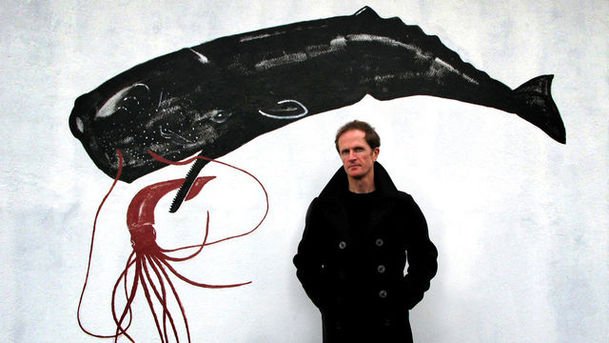Arena - The Hunt for Moby-Dick

Acclaimed writer and authority on whales Philip Hoare tackles man's complex relationship with the whale and brings it into startling new focus through one man and one book: Herman Melville's Moby-Dick. Hoare draws an eerie parallel between Captain Ahab's obsessive pursuit of the great white whale on the high seas and today's war on terror. In precariously tiny boats, a hundred years ago, whaling men braved the biggest animals on earth with no more than hand-held harpoons. Their furious battles were grim and without mercy. The prize catch was the mighty sperm whale, the greatest predator the world has ever seen. Today, the whale is still witnessed with awe, no longer as a monster but as a magnificent, gentle giant. In an epic journey which takes him from the bleak northern coast of England to the whaling ports of New Bedford and Nantucket, and finally to the islands of the Azores - where whales were still hunted with traditional harpoons up to the 1980s - Hoare enters a world haunted by a bloody and violent past. He stands at the desk where Melville wrote his masterpiece and discovers the original skeleton of a Victorian whale in Yorkshire, which inspired Moby-Dick. He visits the last remaining whaleship, the Charles W. Morgan, to see what conditions on board were really like. And out in the mile-deep waters of the Atlantic, he has his own extraordinary encounter with the legendary sperm whale itself. In Arena: The Hunt for Moby-Dick, Hoare takes us closer than ever before to the truth behind the story of The Whale and the fear and awe it inspires. What does Moby-Dick have to tell us about our modern world?